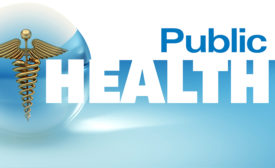Workplace Health
Pool chem injuries cause 4K+ emergency department visits a year
Kids, teens at special risk
May 21, 2019
Casella unveils new VAPex Pump
Product designed to protect employees from chemical exposure with safe low flow pump monitoring
May 20, 2019
New NIOSH study describes drug overdoses at work
A look at the workers and workplaces affected by substance use on the job
May 16, 2019
Never miss the latest news and trends driving the safety industry
eNewsletter | Website | eMagazine
JOIN TODAYCopyright ©2024. All Rights Reserved BNP Media.
Design, CMS, Hosting & Web Development :: ePublishing








